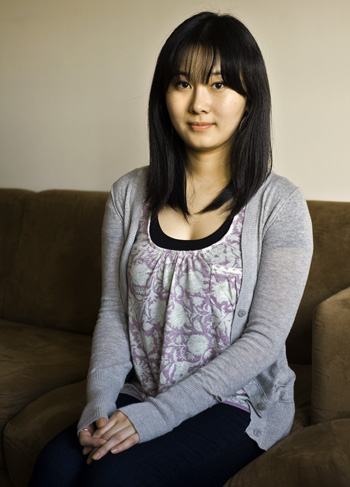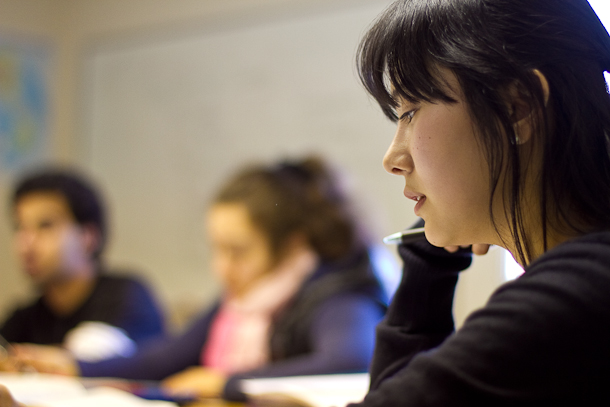Since last week’s magnitude-9.0 earthquake and the tsunami that followed in its wake ravaged Japan’s Honshu Island, EMU student Satoyo Yoshida has been eager to return to her native country to see her family in person.
But without the opportunity to visit, Yoshida, 19, has kept in touch through the Internet video-chat program Skype. While all her family members who live in Hiroshima are safe, the situation for residents of Sendai, such as her cousin, is not as good.
(Yoshida is a student in EMU’s Intensive English Program, in which international students focus full-time on English classes, building language skills through immersion in a new culture.)
The city, about 500 miles northeast of Hiroshima, was pummeled March 11 by the tsunami created by the offshore earthquake. To make matters worse, residents there have been told to remain indoors because of radiation leaking from a nuclear power plant in the Fukushima province.

“It was lucky because my cousin bought all this stuff before the nuclear [radiation levels spiked],” Yoshida said Thursday. “She has a little bit of food to survive for a few weeks. After that, they’re not sure what they’re going to do for food. Even though they can come out for a little bit of time, the stores are closed.”
Yoshida came to the United States in January to study at Eastern Mennonite University. While Japan likely will be dealing with disaster for several months, she’s looking forward to summer break, when she plans to visit.
“I’d like to see how it is,” she said.
Despite the distance that separates her mother and father, Emi Yoshida, 49, and Tadayoshi Yoshida, 56, from the hardest-hit areas, media coverage of the event has been so extensive and emotional that she limits how much she keeps up with events through news outlets.
“I worry about it every day, even though I know Hiroshima is very far” from the center of the disaster, she said. “Whenever I see the news, I see young people who are the same age as me sitting on the street. They’ve lost their family, so it is very bad. But I try not to watch any of the news.”
But the news coverage is a mixed blessing because it has surprised and encouraged her that the disaster has shown the concern that other nations have for hers.
“I didn’t know people from other countries would care this much about things,” she said.
